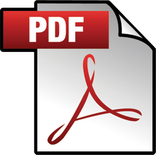Russia 1853 - 1924
In 1855, Russia was defeated in the Crimean War, marking the beginning of a period of major political and social change. Tsar Alexander II initiated a series of reforms, including the abolition of serfdom in 1861, but discontent continued to grow. In 1905, a revolution erupted, leading to the establishment of a parliament and limited civil liberties. However, the monarchy remained in power, and the country's involvement in World War I further weakened the regime. In 1917, the February Revolution overthrew the monarchy, but the October Revolution brought the Bolsheviks to power. The Soviet Union was established in 1922, ushering in a new era of Communist rule.
Did you know?
Nicholas Romanov II is that his family were canonized as saints by the Russian Orthodox Church in 2000, almost a century after their assassination in 1918 during the Russian Revolution. The family was initially buried in unmarked graves, but their remains were eventually discovered and identified in 1991, leading to their canonization as the "Royal Passion-Bearers." Their canonization was not without controversy, as some people still view Nicholas Romanov II as a symbol of the repressive Tsarist regime, while others view him as a victim of political turmoil and violence.
Nicholas Romanov II is that his family were canonized as saints by the Russian Orthodox Church in 2000, almost a century after their assassination in 1918 during the Russian Revolution. The family was initially buried in unmarked graves, but their remains were eventually discovered and identified in 1991, leading to their canonization as the "Royal Passion-Bearers." Their canonization was not without controversy, as some people still view Nicholas Romanov II as a symbol of the repressive Tsarist regime, while others view him as a victim of political turmoil and violence.


